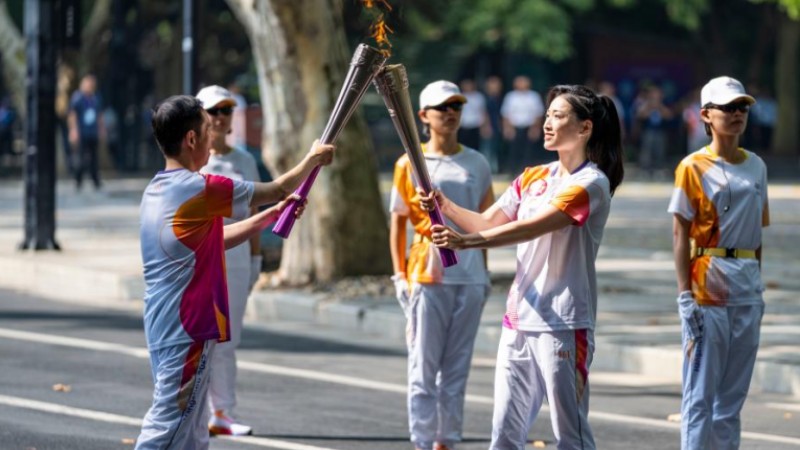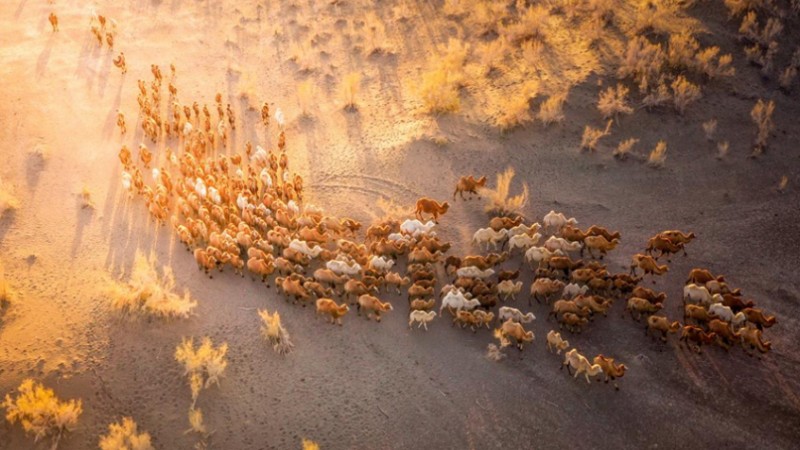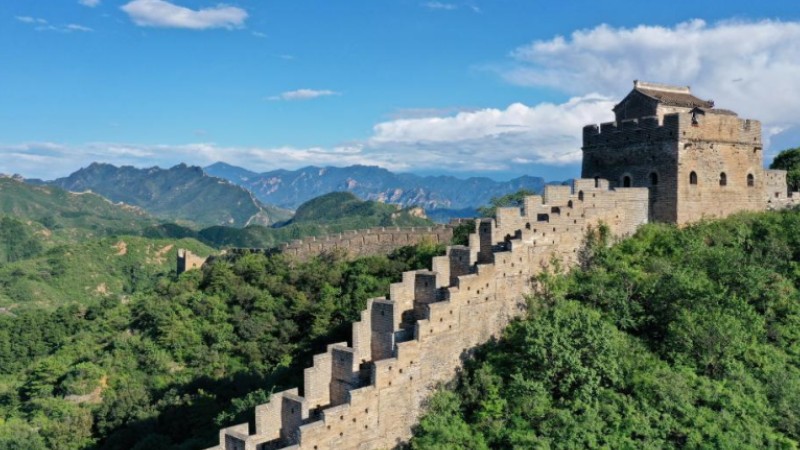Young people inject new vitality into ancient tea plantations in SW China's Yunnan
Jingmai, a lush mountain known for its ancient tea plantations in southwest China's Yunnan Province, has seen an increasing number of young people return to their hometown to engage in the tea business.
Located in Lancang Lahu Autonomous County, Pu'er city of Yunnan, the mountain boasts of sound climatic and soil conditions for the growth of Pu'er tea. The ancient tea plantations of Jingmai Mountain were recognized as the best-preserved, oldest and largest in the world by experts from the Chinese Academy of Sciences in 2003. Some tea trees there were over 1,000 years old.
Covering an area of over 28,000 mu (1,866 hectares), the ancient tea plantations involve three administrative villages, where people of four ethnic groups, including the Bulang and Dai, have inhabited since ancient times.
Xian Jin is a young woman who returned to her village, where locals have lived on tea for generations, in Jingmai Mountain in 2019 after studying tea art and culture in cities like Shenzhen in south China's Guangdong Province and Kunming, capital of Yunnan.
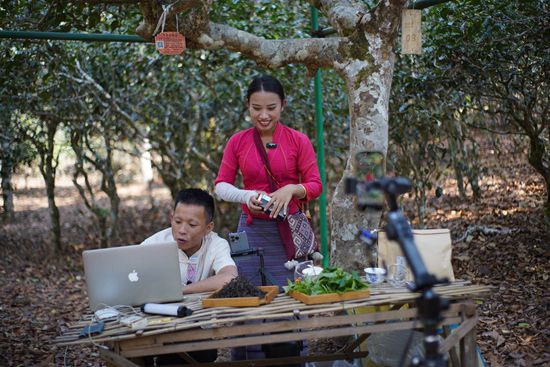
Xian Jin (right) prepares for a livestream at a tea garden in Jingmai Mountain, Lancang Lahu autonomous county, Pu'er city of southwest China's Yunnan Province. (Photo courtesy of the interviewee)
With an ancient tea plantation, Xian's family established a tea processing plant in 2007 and set up the first tea cooperative in the village three years later. "In the past, my father mainly sold tea to tea dealers at wholesale prices. Sometimes, some companies came to Jingmai Mountain to buy tea," Xian said.
Today, tea gardens in Jingmai Mountain cover more than 70,000 mu (4,666 hectares), having a tea-picking area of more than 61,600 mu, data shows. The total output of tea leaves from the tea gardens exceeded 2,185 tonnes in 2022, generating over 96.7 million yuan ($13.2 million).
Xian and her elder sister hosted livestreams to sell tea leaves from February to March 2022. During a livestream, they sold tea leaves worth as much as 4,000 yuan ($546). But later, Xian suspended business through livestreams due to some reasons.
Last September, Xian restarted livestreams with her boyfriend, a newcomer to her village. During their first livestream, transactions of tea leaves exceeded 6,000 yuan, Xian recalled.
Now, Xian usually wears traditional costumes of the Dai ethnic group and begins a livestream at 4 p.m. every day to show the beauty of the ancient tea plantations, and introduce tea culture.
"The average turnover of tea leaves in each livestream now reaches about 5,000 yuan," Xian said, adding that sales of tea leaves through livestreams account for 40 percent of her family's total.
Xian and her boyfriend are working to attract more young people in Jingmai Mountain to ride on the wave of livestreams to sell local tea to customers outside the mountain.
The local government has been integrating tea with tourism. Since 2015, the local government has improved road conditions, built new parking lots and renovated existing ones. "Since the spring of this year, the number of tourists to Jingmai Mountain has increased significantly," said Xian.
Jingmai Mountain has also attracted a French man named William, who drank Pu'er tea by chance in his motherland when he was a high school student and decided to visit Yunnan at 19.
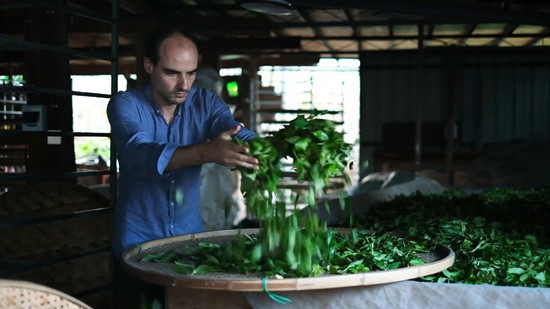
William, a French man, processes tea leaves in southwest China's Yunnan Province. (Photo courtesy of the interviewee)
At first, William spent half a year in Kunming, where he learned Mandarin and visited tea markets to learn about Pu'er tea. He later moved to Xishuangbanna, where he often visited tea farmers in tea mountains to learn how to plant trees and process tea leaves.
William likes the Jingmai Mountain the most. "I'm captivated by the ancient tea plantations, diverse ethnic cultures and beautiful scenery there. I think tea from the mountain has a unique fragrance," the man said.
In 2010, William met a Dai girl named Yu Bai, who was born into a tea family, in Jingmai Mountain, and fell in love with her. Two years later, he opened a cross-border e-commerce website to sell Pu'er tea when he was a college student in France. He returned to Yunnan to marry Yu after graduating from college, and has settled down in the province. In 2017, he opened a YouTube account, releasing videos of him processing and making tea.
William has been making tea in Jingmai Mountain for 10 years. He now sells tea leaves to the United States, Europe, and other countries. In the past five years, sales of his tea leaves, most of which are processed by himself, increased nearly tenfold.
Photos
Related Stories
- Wuzhou City famous for Liubao tea making in S China's Guangxi
- County in C China's Hubei thrives on medicinal herb
- German students experience traditional tea culture in China
- Trending in China | Chinese tea's many scrumptious snacks
- Chinese tea culture event organized in Myanmar
- Thriving tea industry brings wealth to locals in Enshi, C China's Hubei
Copyright © 2023 People's Daily Online. All Rights Reserved.






